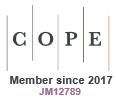Reproductive isolation between two closely related species of the Queensland fruit fly Dracus tryoni (Frogg) and D. neohumeralis Hardy (Diptera : Tephritidae) I. Variation in humeral callus pattern and the occurrence of intermediate colour forms in the wild
H Wolda
Australian Journal of Zoology
15(3) 501 - 513
Published: 1967
Abstract
A number of samples from wild populations of the Queensland fruit fly, Dacus tryoni and D. neohumeralis, were studied. There is a considerable variation in the colour pattern on the humeral callus. This variation is continuous so that any criterion for distinguishing between "intermediates" and "good species" is purely arbitrary. It was found in areas where D. neohumeralis does not occur as well as in localities where it is very abundant. By whatever criterion one defines intermediates, there appears to be no relation between the frequency of such forms and the presence or absence of D. neohumeralis or with the relative proportions of the two species in the population. However, flies with only a very small yellow area on an otherwise brown humeral callus were found only in Cairns where D. neohumeralis is usually the most abundant species. A similar variation in humeral callus pattern was found in other related species, such as D. kraussi and D. halfordiae. It is concluded that the intermediate colour forms may not be hybrids between D. tryoni and D. neohumeralis but variants of D. tryoni and, possibly the darker forms from Cairns, of D. neohumeralis.https://doi.org/10.1071/ZO9670501
© CSIRO 1967


